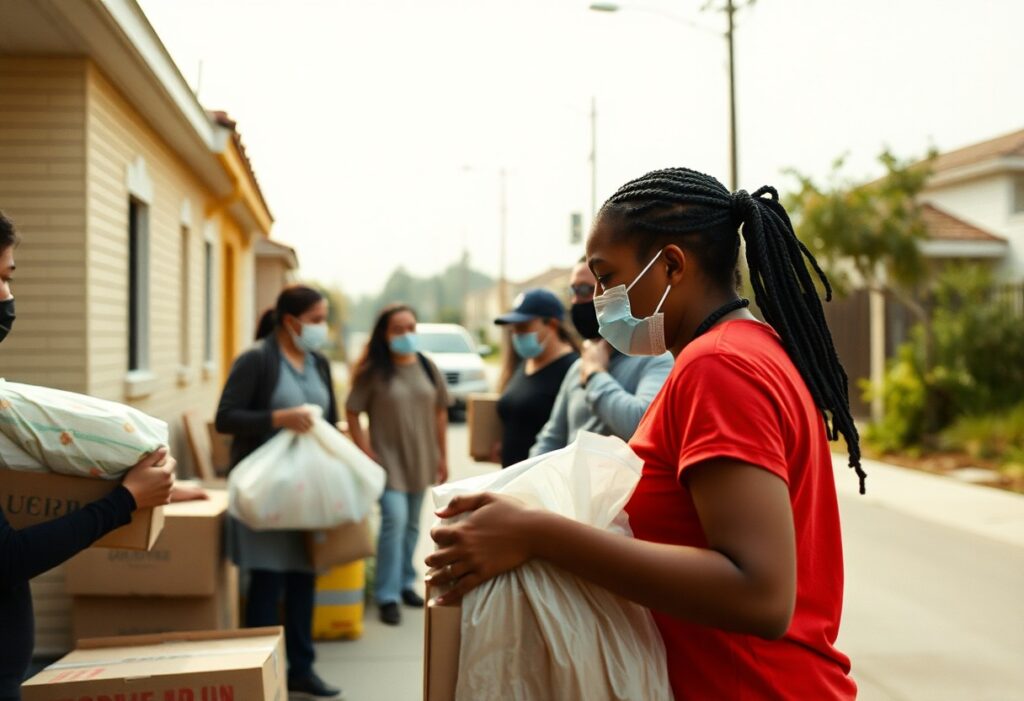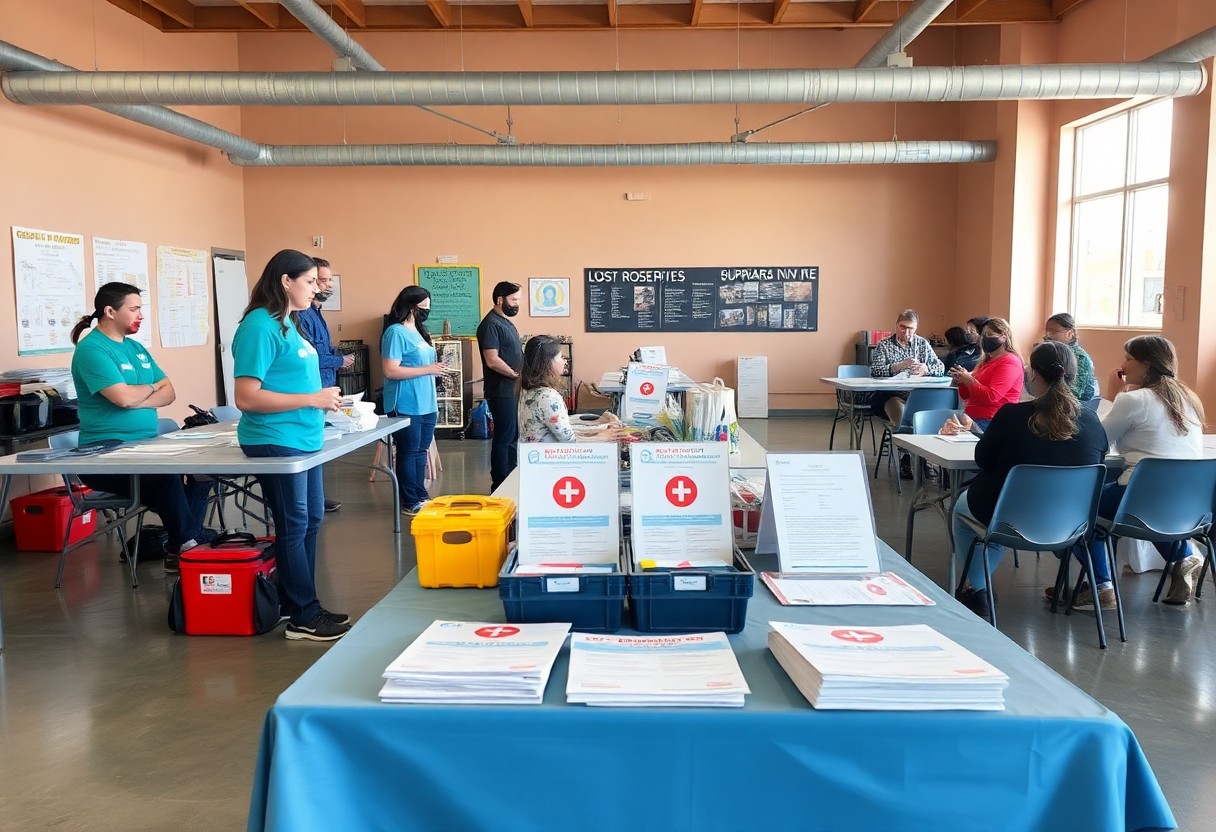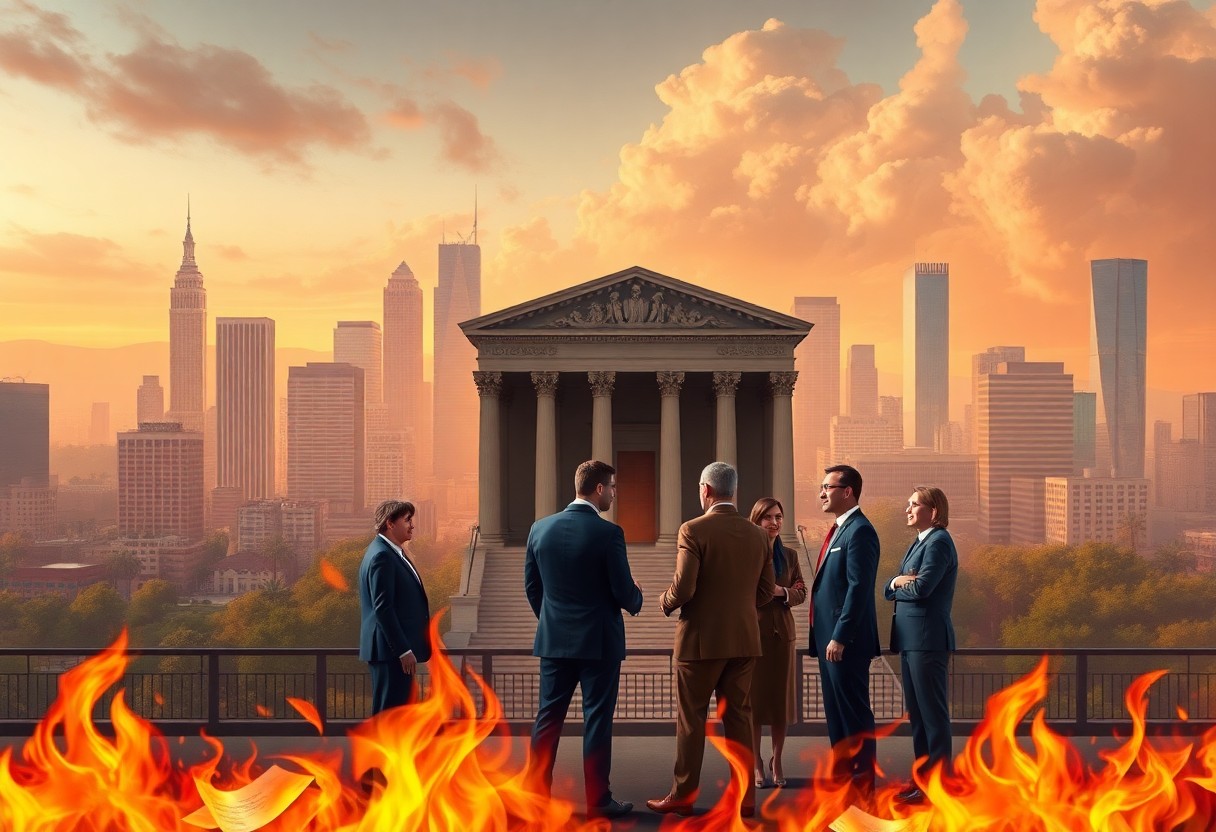With the increasing threat of wildfires in Los Angeles, it’s crucial for you to know the community resources available to support survivors like yourself. This information can help you navigate the recovery process, access critical financial assistance, find temporary housing, and receive emotional support. Whether you are seeking practical help or simply need someone to talk to, your local community is here for you during this challenging time. Explore the various organizations and resources dedicated to helping you rebuild and regain your footing.
Overview of Wildfires in Los Angeles
The wildfires in Los Angeles have become increasingly prevalent due to a combination of climate change, drought conditions, and urban development. Each year, you witness the devastating impact these fires have on local communities, ecosystems, and air quality. With the hot, dry Santa Ana winds often exacerbating the situation, quick action and preparedness are crucial to minimize the damage caused by these destructive events.
Historical Context
With a history marked by frequent wildfires, Los Angeles has faced significant challenges as a result. Major incidents, such as the 1961 Bel-Air Fire and the 2018 Woolsey Fire, illustrate the ongoing risk that wildfires pose. Over the decades, you can see how these events have shaped local policies and fire management strategies aimed at protecting lives and property.
Impact on Communities
By observing the aftermath of wildfires, you can understand their profound effects on local communities, including loss of homes, displacement of residents, and disruption of crucial services. These fires not only lead to tangible losses but also take a toll on the mental health of survivors.
Communities affected by wildfires face devastation and uncertainty in the wake of destruction. You may find yourself grappling with the loss of your home, cherished belongings, and even emotional ties to the area. The impacts extend beyond personal loss; local economies are affected as businesses close and tourism wanes. Moreover, fires can lead to displacement, forcing you and your neighbors to seek alternative housing options. The mental health challenges that arise from such trauma can linger long after the flames are extinguished, illustrating the profound toll wildfires take on both individuals and communities as a whole. Support from local resources becomes crucial in fostering recovery and resilience during these trying times.
Immediate Support Resources for Survivors
Some immediate support resources are available to assist you in your time of need following a wildfire. Organizations, agencies, and community groups have mobilized to provide various forms of aid that can help you recover and rebuild.
Emergency Shelters
Against the backdrop of disaster, having access to emergency shelters can provide you with a safe haven. Various local agencies and shelters are set up to offer temporary housing, food, and important services to all affected individuals. You can find a nearby shelter through local community resources or the Red Cross.
Crisis Hotlines
For those struggling with the emotional aftermath of a wildfire, crisis hotlines are available to offer support and guidance. These services can help you navigate your feelings, provide resources, and connect you with mental health professionals who specialize in disaster recovery.
Further exploring the options offered by crisis hotlines, you will find compassionate listeners who can provide immediate support 24/7. These trained professionals are equipped to assist you in dealing with feelings of distress, anxiety, or grief, and they can direct you to additional mental health resources when needed. It’s important to reach out if you’re feeling overwhelmed—help is just a phone call away.
Financial Assistance Programs
Clearly, navigating financial challenges after a wildfire can be overwhelming. Fortunately, various financial assistance programs are available to help you recover and rebuild. These programs, including government grants and nonprofit support, aim to ease your burden and provide the necessary resources. Understanding these options is key to accessing the help you need during this difficult time.
Government Grants
At the federal and state levels, several grants are specifically designed to assist wildfire survivors. Programs like the Federal Emergency Management Agency (FEMA) offer funds to help you with housing assistance, repairs, and other vital needs. You should explore these grants and the application process to maximize your recovery efforts.
Nonprofit Support
Grants through nonprofit organizations can be a vital resource for your recovery. Many nonprofits provide financial aid, emergency supplies, and counseling services tailored to wildfire survivors. These organizations often prioritize helping those most affected by disasters, ensuring your needs are addressed.
For instance, organizations like the American Red Cross and the United Way offer not only financial assistance but also resources for rebuilding your life after the wildfire. They often organize fundraising events and collaborate with community partners to offer comprehensive support packages. This can include everything from immediate financial aid to mental health services, making it easier for you to transition back to stability.
Mental Health Services
Now, addressing your mental health is vital after experiencing the devastation of a wildfire. Los Angeles offers various mental health services designed to support you during this challenging time. From professional counseling to peer support programs, these resources aim to help you cope with trauma, anxiety, and grief, enabling you to rebuild your life. Connecting with these services can provide you with guidance, understanding, and tools needed for your emotional recovery.
Counseling Services
Among the available options, counseling services stand out as tailored support for your individual mental health needs. Many licensed therapists in Los Angeles specialize in trauma and loss, offering a safe space to process your experiences and feelings. Whether you seek short-term or long-term therapy, these professionals can help you navigate your emotions and establish coping strategies to foster healing.
Support Groups
Across Los Angeles, various support groups are available to connect you with individuals who have faced similar challenges. These groups provide a platform for sharing experiences, insights, and encouragement, fostering a sense of community among wildfire survivors. They serve as a reminder that you are not alone in your journey to recovery.
It is important to engage in support groups as they can facilitate valuable connections and shared experiences among wildfire survivors. These gatherings often provide a space to express feelings and challenges, encouraging open dialogue that promotes healing. As you listen to others and share your own story, you may find a renewed sense of hope and community, reinforcing the understanding that you are not alone in your journey toward recovery.
Rebuilding and Recovery Resources
Keep in mind that rebuilding after a wildfire can be a daunting task, but numerous resources are available to support you through recovery. Local organizations, government agencies, and community groups offer assistance ranging from financial help to rebuilding homes and mental health support. Leveraging these resources can significantly ease your transition from disaster to normalcy, paving the way for a fresh start.
Housing Assistance
Beside the emotional toll, losing your home can severely impact your stability. Numerous housing assistance programs in Los Angeles are ready to help you secure temporary or permanent housing solutions. From federal programs like FEMA to local non-profits, you’ll find a range of options to assist with rent and rebuilding housing.
Community Development Programs
Community development programs play a significant role in helping you recover from wildfire devastation. These initiatives focus on revitalizing neighborhoods through financial grants, housing rehabilitation, and infrastructure improvement. You can gain access to educational workshops that teach disaster preparedness, ensuring a proactive approach for the future. These programs aim to foster a strong sense of community while addressing your specific needs as a survivor.
Development initiatives often include partnerships with local organizations that can provide vital resources for you and your family. Through workshops and ongoing support, you can learn about financial planning and emotional resilience, which are necessary for your recovery journey. Engaging in these community programs not only aids in personal recovery but also actively contributes to the overall strengthening of the community, ensuring that you are not alone in this process.
Long-Term Community Support Networks
For survivors of wildfires in Los Angeles, long-term support networks are vital in fostering resilience and recovery. These networks not only provide assistance during immediate crises but also help you rebuild your life in the aftermath. Resources such as Los Angeles Fire Resources offer ongoing support and vital information about available programs and services in your community.
Volunteer Organizations
Long-term volunteer organizations play a key role in helping you recover after a wildfire. They offer hands-on support, whether it’s through providing crucial supplies, emotional support, or assistance with rebuilding your home and life. Engaging with these groups not only helps you, but also fosters a sense of community and connection among other survivors.
Local Government Initiatives
Local government initiatives offer additional layers of support for wildfire survivors like you. These programs aim to address immediate needs as well as long-term recovery goals, ensuring that you have access to important services such as financial assistance, mental health resources, and reconstruction programs.
Organizations within local government actively work to provide comprehensive support to you and your community in times of need. With initiatives focused on disaster recovery, housing assistance, and community rebuilding efforts, you can access vital resources that not only help restore your life but also strengthen your community as a whole. Their commitment to ongoing support ensures that you are never alone during your recovery journey.
Final Words
As a reminder, if you find yourself affected by wildfires in Los Angeles, numerous community resources are available to support you. Organizations like the Red Cross, local shelters, and mental health services can assist in your recovery process. Be sure to reach out to your local government and non-profits for aid with housing, counseling, and financial assistance. Connecting with these resources can help you rebuild and regain stability in your life after such a challenging experience.










